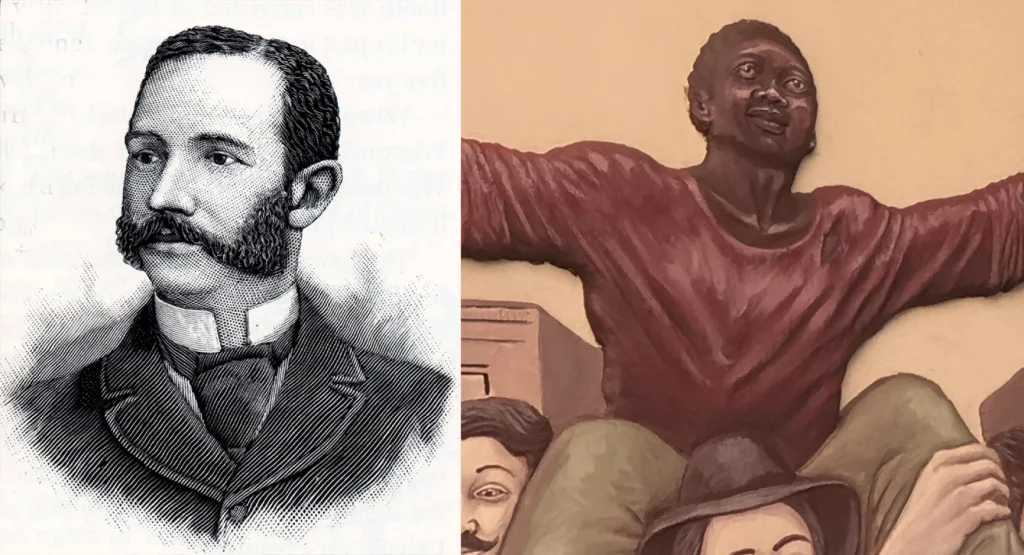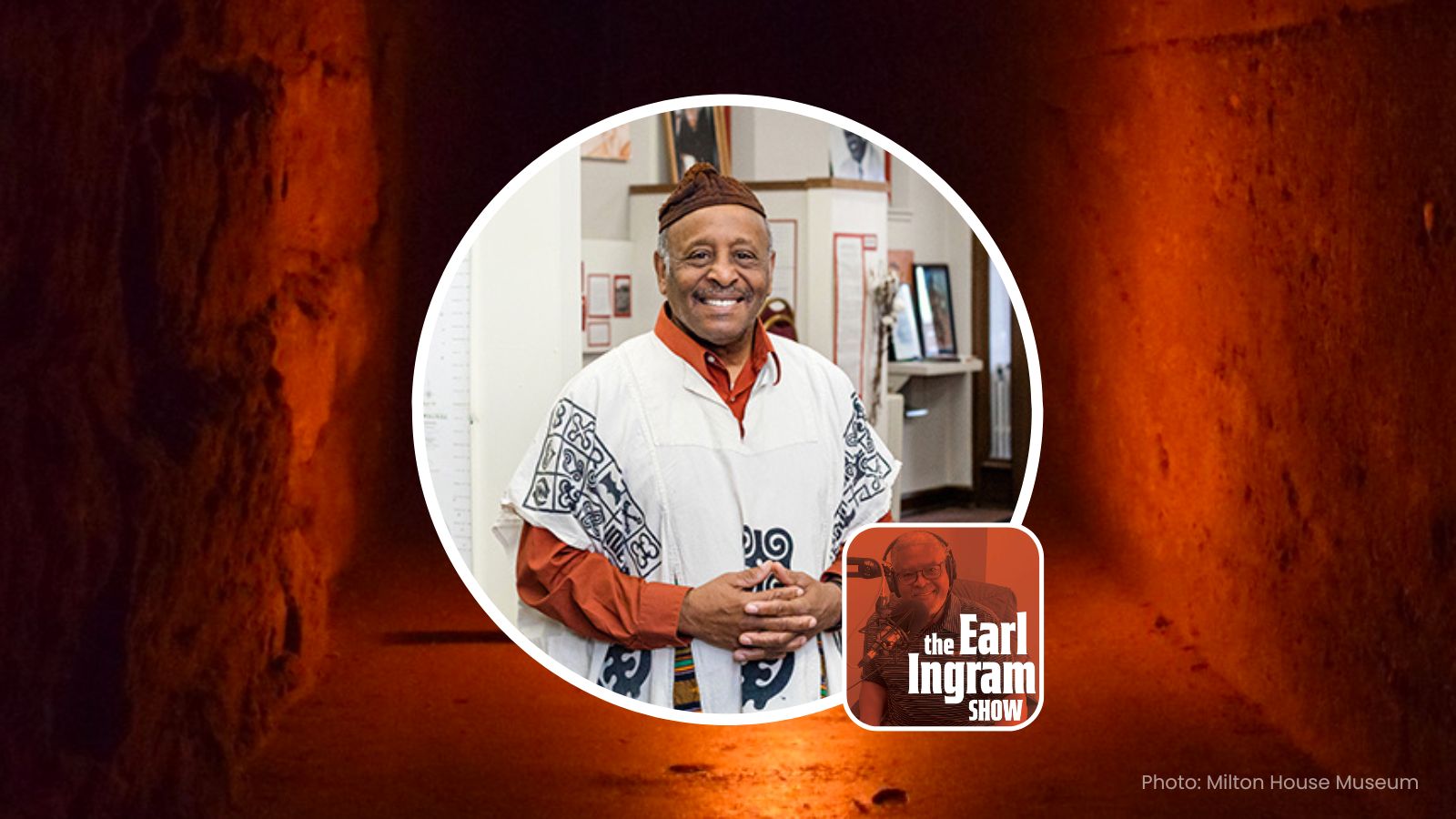Did you know Wisconsin has deep connections to Black history, including the Underground Railroad and the abolitionist movement? Luckily, many of these stories have been documented, allowing us to learn more – not just during Black History Month – but anytime.
Wisconsin Black Historical Society and Museum Founder and Director Clayborn Benson discussed his work and Wisconsin’s tie to Black history with Earl Ingram, host of The Earl Ingram Show, during one of Ingram’s many special segments this month.
Wisconsin has a beautiful, rich Black history. And some of the things that happened here also had an impact on the nation. That’s why this is important history for all of us.
Clayborn Benson, Wisconsin Black Historical Society and Museum Founder and Director
Clayborn Benson worked as a photojournalist at a Milwaukee news station for close to 40 years. Preserving stories then built the base for Benson to be a Black history expert now.
“What are your thoughts about doing away with some books and the history in those books?” Earl Ingram asks.
“I really want people to think for themselves and use an open mind and open dialogue,” Clayborn Benson says. “Don’t tell me what you think, but instead, tell me why you think the way you do? Tell me the history you’ve learned and where you learned it.”
Benson goes on to share why all residents need regular opportunities to share stories.
“Segregation used to mean black kids were separated from white kids,” Benson says. “But now we often have the ability to take advantage of any opportunity to learn from these relationships. What a great way to work through them together so we can better understand each other and get along.”
“We have shared history, too,” Ingram says. “Many in Wisconsin don’t know about the Underground Railroad. Even those who live in some of these specific areas and their families helped keep black people safe, have no idea about it. Yet, this is black and white history!”
This hits home through the story of Joshua Glover. He was enslaved but made his escape from the St. Louis area. Glover makes it to Milwaukee, then lives and works in Racine. Bounty hunters catch up with him there. He is arrested and thrown behind bars.
“Parts of Wisconsin are in trouble for breaking the Fugitive Slave Law,” Benson says. “We are also one of the few in the nation to help slaves find their way to freedom in Canada. Massachusetts is also very active, but typically quietly under the cover of darkness. Wisconsin isn’t hiding the fact we are helping along the Underground Railroad and often during the daylight hours.”

In the end, abolitionists who are against slavery, bust Glover out of jail and hide him until he can catch a boat from Racine to Canada. He lives there as a free man for the rest of his life.
“The white abolitionists didn’t like the way their own families were impacted while still in Europe,” Benson explains. “So slaves were able to find help in places like Milton, Burlington, Racine, and Kenosha. These were just some of the areas where there were hideouts set up, clothes, food, and someone to help them make their way to a safe settlement or to Canada.”
“So this history is important for all of us. Blacks, Whites, and Wisconsin,” Ingram says.
A caller to The Earl Ingram Show reacts while on the phone, saying, “Thank you for this, Earl. We have the responsibility to teach the next generation. America still has issues, and if we do not teach our kids about history, it will repeat. We cannot go backward with regards to discrimination ever again.”
“Wisconsin has a beautiful, rich Black history,” Benson says. “And some of the things that happened here also had an impact on the nation. That’s why this is important history for all of us.”
Watch the interview today:
More Articles
Civic Media’s “Truth Booth” to Capture the Voices of Wausau at the Fair
7/26/2024 | Teri Barr
Local residents can share their stories about life in the Wausau area and record them for posterity during the Wisconsin Valley Fair.
Eight Area School Districts Receive $206K for Technical Education Upgrades
7/26/2024 | Stuart J. Wattles
The funding aims to prepare approximately 2,000 students for quality jobs
Eau Claire Officials Respond to Removal of Wilson Park Benches
7/26/2024 | James Kelly
Eau Claire City Council members are asking questions this week after all of the benches and picnic tables were removed from Wilson Park.
Aviation enthusiasts flock to EAA AirVenture
7/26/2024 | Lisa M. Hale
People from all over the globe are a part of the largest fly-in in the world, EAA AirVenture 2024.
8th Congressional District Republican candidates debate
7/26/2024 | Lisa M. Hale
-The Republican candidates in the 8th Congressional District race participated in a debate sponsored by the Wisconsin Manufacturer’s & Commerce (WMC). The WMC is the combined state chamber and manufacturer’s association.

